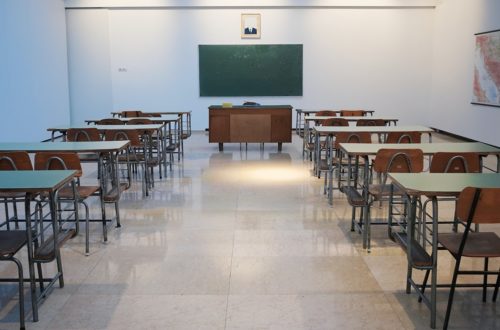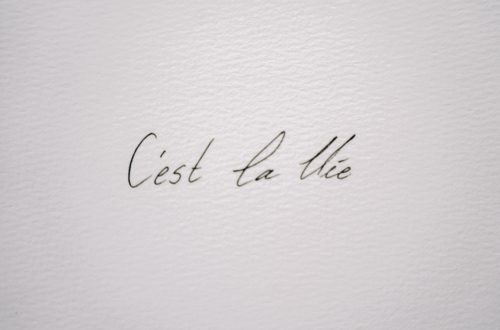You are relocating to France with your teenagers? Then, finding a French lycee, a French high school, will be one of your first worries. Whether you are registering your child in a public or private French school, the curriculum is national as well as the baccalaureate exam.
If you have children between about 15 and 18 years old, you will be interested in reading this article until the end as I will explain in detail the secondary school system; how it is organised and the enrolment process.
Once pupils reach the French lycee, they have three years before they take the famous Baccalaureate (or “Bac”) exam. It is the cornerstone of the French school system.
- First-year of secondary school: Seconde
- Second-year of secondary school: Première
- Last and third year of secondary school: Terminale
A the end of the first year of secondary school, teenagers should decide whether they go to the general section (choice between 3 options) or a more technological section (choice between 8 sections).
Table of Contents
Secondary school sections
The general route
The general option is a more academic choice, focusing on general knowledge and less on applied one. This section is perfect for scholastic students that don’t know what they want to study later on. Being a very broad education, it keeps their options open to both technical studies and very selective universities or business schools.
Out of their generation, 79.7% of the teenagers graduated from the Bac in 2019. And from the ones that took the exam, the overall rate is 88.1% in the first round (in June). There is a second round in September for some students that had an average between 8 and 10 over 20.
Out of the 79,7% of teenagers, 42.5% of the secondary students chose the general section in 2018 according to INSEE, the French National statistics institute.

The technological route
The technological route is meant to lead to 2-3 years of technical college education and can also apply to engineering higher studies.
There are 8 technological options:
- STL : “sciences et technologies de laboratoire” (Laboratory Sciences and technologies)
- STI2D : “sciences et technologies de l’industrie et du développement durable” (Industrial sciences & technologies and Sustainable development)
- STD2A : “sciences et technologies du design et des arts appliqués” (Design and applied arts science and technologies)
- STMG : “sciences et technologies du management et de la gestion” (Management and administration sciences and technologies)
- ST2S : “sciences et technologies de la santé et du social” (Social & Health sciences and technologies)
- S2TMD : “techniques de la musique et de la danse” (Dance and music sciences and technologies)
- STHR : “sciences et technologies de l’hôtellerie et de la restauration” (Hospitality and restaurant industry sciences and technologies)
- STAV : “sciences et technologies de l’agronomie et du vivant” (Life and agronomics science and technologies)
Out of the 79,7% of the secondary school students who graduated with the Baccalaureate in 2019, 16,4% chose one of the 8 technical sections.
Both general and technical routes are taught in the same secondary schools, the Lycées généraux.
The Vocational route
The vocational route should be chosen at the end of middle school (Troisième). Students are taught to integrate faster their working life; however, some students may choose to continue higher education studies afterwards.
The remaining 20,8% are lycee students who graduated from professional sections, that are taught in separate professional secondary schools.
We will detail the vocational lycées in a later post.
The lycee French school reform from September 2019
The 2019 secondary school reform highly impacted the general section. The 3 options L (for Literature), S (for Science) and ES (for Economics) were removed to be replaced by a core curriculum and ‘specialities’ from Première.
The core curriculum includes history, geography, 2 foreign languages (Langue Vivante A & B, often called LVA & LVB), science, French literature, Civics (EMC) for a total of 16h classes/week, and from Terminale (last year of French lycee), Philosophy remains part of the core curriculum (total of 15h30/week).
With the reforms, pupils will be able to choose three subjects as specialities (totalling 12h/week) from a potential 17, ranging from literature and philosophy to physics and chemistry to literature, and with seven arts subjects.
In addition to the total of 28h in Première and 27h30 in Terminale, all students should take ‘orientation’ classes for 1h30/week to help students with their future education and career choices.
Students will drop one of these in Terminale to specialise in only two subjects (for a total of 12h/week). Students can add one option in première and another in Terminale for 3h/week.

How to enrol on the French public lycee?
The process
For secondary school enrolment, I advise you to contact the Rectorate of your Académie for information, they will confirm which French lycee matches your new home address. All public school allocation depends on your catchment area.
If you have just arrived in France and are planning to rent temporary accommodation for a few weeks, I advise you to take into consideration the public school you want to enrol your children.
The enrolment process and required documents will vary from one French lycee to another. Therefore, once you have been allocated your local school, you should contact the director directly to start the enrolment process.
A large number of schools offer French as a foreign language classes to allow a better induction for allophone children. The student can take 3, 6, 9 or 12 hours of French lessons per week depending on the needs (based on the initial assessment).
Contact the Rectorate of your Académie to have information about the school offering French classes as a foreign language (called FLE-FLS). The CASNAV, the specialised department of the Rectorate to welcome allophone students in the French school system, will assist you in this process and liaise with your allocated school.
Your child will first be assessed by a team of professionals. The class assignment will be determined by the results of a French test and a learning assessment.
The following documents will be required to register your child:
- each child’s birth certificate (if needed, translated into French by a sworn translator certified by a French court of appeal);
- child’s vaccination record;
- proof of residence in France, less than three months old;

School Calendar
The French secondary school year starts at the beginning of September and goes until June. The Baccalaureate exam is taken from the end of June – beginning of July. Four school holidays of two weeks each are intercalated every 6 weeks during the 10-month school year.
France is divided into three zones to spread the winter and spring school holidays over 4 weeks. This zoning system goes back to the ’60s for economic and touristic reasons.
- Zone A: Caen, Clermont-Ferrand, Grenoble, Lyon, Montpellier, Nancy-Metz, Nantes, Rennes et Toulouse.
- Zone B: Aix-Marseille, Amiens, Besançon, Dijon, Lille, Limoges, Nice, Orléans-Tours, Poitiers, Reims, Rouen et Strasbourg.
- Zone C: Bordeaux, Créteil, Paris et Versailles.
The school week is from Monday to Friday at most schools. Classes usually begin between 8 am and 9 am and end between 4 pm and 6 pm.
I hope this information will help you to understand the French secondary school system. You can also find out information on pre-school and elementary schools in this article. I will soon prepare another article about middle school in France. Stay tuned!




8 Comments
Praveena
Hi,This article is clear my all dout about France Hich school ,So Thank you. I enrol lycee in contact the Rectorate of your Académie last month with all need documents but I didn’t get any message from their so What I do?
Mademoiselle Guiga
Hi Praveena,
I’m happy you found it useful. You could call and/or email the lycee or also the Rectorate to follow up on your enrolment.
Best to you,
Al
I’ve been I’ve been trying to make sense of Orientation for months now since my son is in troisième. This is a great article and explains the system brilliantly. Many thanks 😊
Mademoiselle Guiga
Hello Al,
Many thanks for your feedback!
I’m happy this could help!
Best,
Siboniso Muzembe
Hope l find you well thank you for the information, l have 16year old teenager, she has just finished her 4yr secondary school. At school she was learning in English. Now my issue is is she going to be able to adapt in the new learning environment without french, is there a.programme for non french speakers to enrole first prior to enrolling into the public schools. Or do the public schools offer that facility. Thank you in advance.
Mademoiselle Guiga
Hello,
Yes, there is. You will find more information in this post under How to enrol to the French public lycee?” All the best to you!
Keli
I have a rather unique situation. My husband lives in Paris, France and is a resident there. I live with our 2 kids in the U.S. My daughter has been in a French curriculum school here in the states since Pk-4 and is now in 10th grade. Although her school day is spent in French, she is still living an American lifestyle with most of her friends speaking only English to her, so I know her French could be better. She would like to go to college in France and that is what we would like as well. My idea was originally to send her for a semester every year of Lycee in France, but since she is actually earning 2 diplomas (The French Bac and the LA high school diploma) and has requirements to fulfill for each, leaving for one semester a year would interfere. So my second thought was to see if she would be allowed to attend a lycee for the month of June when she is already out in the US – just to have that month of full immersion in the French system and maybe if she liked it – she could continue the next semester or at least every June. I would be open to the public or a private Catholic (she did go for a semester to a catholic school in Paris in 2nd grade – we are not Catholic, but we wanted to be in the 5th arr and that was the easiest solution) – not sure if public schools will allow an exchange student for just 1 month, do you have any suggestions or knowledge to this? Any suggestions are very much appreciated!
Mademoiselle Guiga
Hello Kelly,
Thank you for reaching out. I understand your situation.
Public schools can accept exchange students if they have a French address (via their host family for example). Since your husband lives in France, your daughter could go to the local public lycée.
I have actually been in that situation as a teen.
I did an exchange programme with a family in Ontario, Canada and my Canadian friend spend 3 months in France and went to the French lycee with me. It was organised via an association (kind of the Rotary club). The best thing would be for your husband to contact the local lycée and arrange it directly with the headmaster.
I hope this helps.